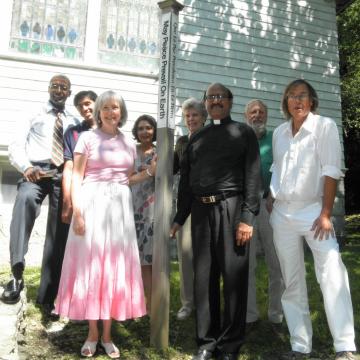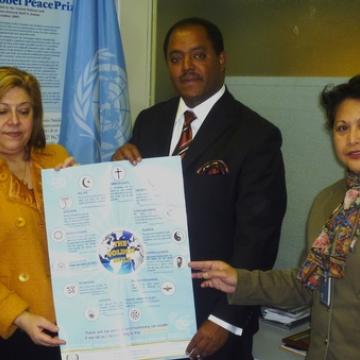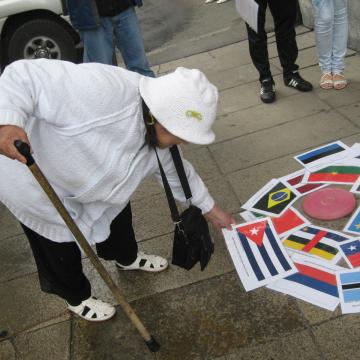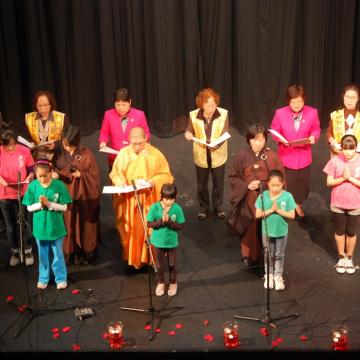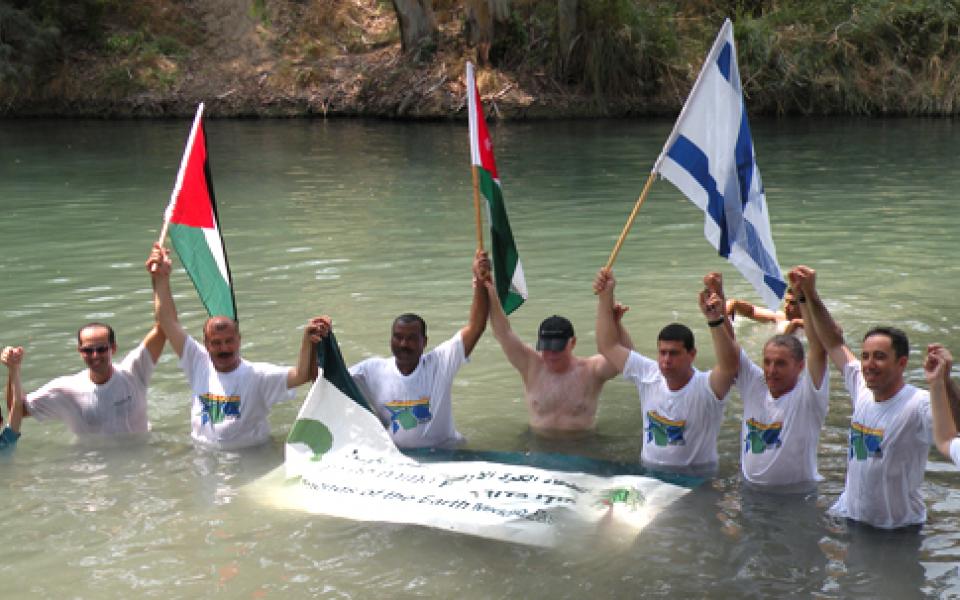
URI Cooperation Circles work at every level, from influencing policymakers to providing training at the grassroots, to build peace, heal existing tensions, and prevent new conflicts.
Examples of our work in this Action Area:
- EcoPeace/Friends of the Earth Middle East CC gathered Israelis, Jordanians, and Palestinians to join their voices in calling for cooperative restoration efforts in the Jordan River.
- In Africa, Shalom Ghana CC ended a 10-year feud between Christians and Muslims by getting youth from both sides together to plant trees the village badly needed.
- After an increase in anti-Muslim hate crimes in California, USA, the Interfaith Council of Contra Costa County CC co-sponsored a "Ring of Solidarity" where over 200 people joined hands around a mosque to show community support for their Muslim neighbors.
